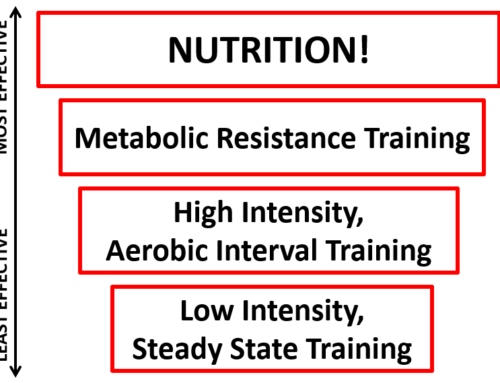
By: Bruce Burke
Why do so many people struggle to exercise regularly? My 30+ years in the fitness industry have taught me that many people struggle because they don’t have powerful, long-term reasons to exercise. Though short-term objectives can motivate you to start an exercise program or cross specific hurdles, it is the loftier, more meaningful, long-term objectives that will help you sustain a healthy lifestyle forever.
Looking past the short-term.
When using short-term objectives as your sole motivation to exercise, slow progress may feel discouraging. If you are not losing weight or gaining strength as quickly as you had hoped, you might lose your motivation and stop trying altogether. Relying solely on short-term motivation, by definition, will not work forever.
Success lies in developing a mindset consistent with what is truly important to you for the long-term. Have you ever considered what drives your mindset? For many of us, good health is the obvious answer, but why is good health important? How strong is your desire to enjoy real vitality as you grow older, rather than succumb to the morbidity that typically accompanies old age? How important is being a good example for your loved ones, as well as not becoming a burden due to poor health? The answers to these questions can serve as motivational reasons to continue an exercise regimen in the long-term. Additionally, focusing on long-term goals can actually make it easier to achieve your short-term goals along the way.
Here are just a few of the reasons we recommend focusing on the long-term goal of health:
- It has no endpoint. Proactively managing your health is an ongoing process. You will enjoy results along the way as a positive consequence of this process, but you are never “done” being healthy.
- It is hard to fail. Because you are never done, it is difficult to fail at being healthy. When you are focused on the process of becoming healthy, issues such as not losing weight quickly enough disappear. Small setbacks are simply small steps in a much larger process.
- It is motivating! For most of us, long-term objectives like staying fit and being good role models for those we love have more staying power than wanting to fit into a pair of old jeans. Though there is nothing wrong with short-term goals, there are few things more motivational than the lifelong health benefits offered by staying fit and active.
As you develop a long-term, health-centered approach to exercise, remember that short-term goals are not bad. In fact, they’re important tools to help us overcome boredom, challenge ourselves, and introduce new practices. We are simply suggesting that you find a long-term objective to help motivate you through any sticking points. Re-focusing on these objectives will put the short-term goals in perspective. If you are doing what it takes to stay healthy, most of these other goals will take care of themselves anyway.
This week, ask yourself the question “why do I exercise?” Make sure that your answer lines up with reasonable, healthy, long-term goals, then use your short-term goals as tools to help you succeed.




